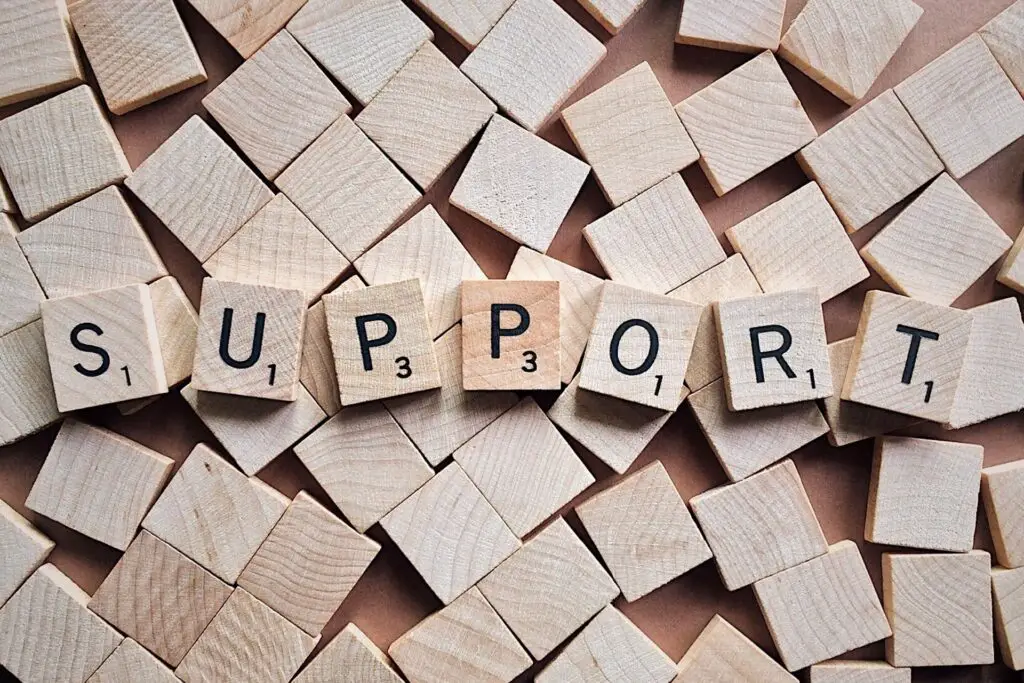Living in close proximity to neighbours can be a wonderful experience, fostering a sense of community and support. However, sometimes unfortunate situations arise, and one such challenge in the UK is dealing with verbally abusive neighbours.
This blog aims to address this issue by providing guidance and actionable advice for individuals who find themselves in such difficult situations.
It is crucial to address the problem of verbally abusive neighbours promptly.
Verbal abuse can have a severe impact on your emotional well-being, mental health, and overall quality of life. Allowing such behaviour to persist without taking action may lead to further escalation and worsening of the situation.
The purpose of this blog is to equip individuals with the necessary knowledge and strategies to effectively deal with verbally abusive neighbours.
Remember, you are not alone, and there are steps you can take to find a resolution and create a peaceful living environment.
Recognising Verbal Abuse
Verbal abuse can manifest in various ways, and it is essential to recognise the different forms it can take.
Verbally abusive neighbours in the uk can include the following:
- Insults
- Threats
- Derogatory language
- Constant shouting
- Belittling
- Persistent harassment
Recognising these forms of verbal abuse is the first step in addressing the problem effectively.
Verbal abuse may not always be overt, making it important to identify the signs of abuse in neighbourly interactions.
Look out for repeated instances of aggressive language, personal attacks, and demeaning comments.
Pay attention to any feelings of fear, anxiety, or intimidation that arise during interactions with your neighbour.
Verbal abuse can have a profound impact on your overall well-being. It can lead to heightened stress levels, anxiety, depression, and a decreased sense of safety in one’s own home.
Recognising the impact of verbal abuse is crucial for understanding the need to address the issue and seek resolution.

Documenting and Collecting Evidence
Documenting incidents of your verbally abusive neighbours is crucial for building a strong case and establishing a pattern of behaviour.
It helps provide clarity, credibility, and evidence when addressing the issue with authorities or seeking legal remedies.
Keep a log of incidents
Keeping a detailed record ensures accuracy and allows you to track the frequency, nature, and impact of the incidents over time.
There are various methods for documenting incidents of verbal abuse.
One effective approach is to maintain written notes that capture important details such as dates, times, specific remarks, and any witnesses present.
It is a good idea to have a specific book where you keep your notes, such as this evidence book from Amazon.
Obtain video evidence of verbally abusive neighbours UK
You should also consider using audio or video recordings as additional evidence as this can back up your written log. Video evidence is extremely helpful to show what you are dealing with.
You should consider getting a smart doorbell or outdoor home security system, such as a Ring DoorBell or EufyCam 2C Security Camera (both links to Amazon) to capture evidence.
Put the cameras outside the front and back of your house so you have covered all of your property. These devices are brilliant for capturing evidence as they immediately record when anyone comes onto your property.
Get witness statements
Witness statements can provide valuable support and credibility to your case.
If there are neighbours or other individuals who have witnessed the verbal abuse, approach them politely and ask if they would be willing to provide a written statement describing what they observed.
These witness statements can help corroborate your account and strengthen your position when seeking a resolution.
Maintaining objectivity and accuracy when documenting incidents is essential. It’s important to separate emotions from the facts and present a clear and unbiased account of the events.
Focus on providing objective descriptions of what occurred, rather than adding personal opinions or interpretations.
Review your documentation periodically to ensure accuracy and make any necessary updates.

Assessing Legal Rights and Options
Understanding the legal framework surrounding neighbour disputes is crucial for effectively addressing verbally abusive neighbours in the UK.
Research and familiarise yourself with relevant laws, regulations, and legal principles that govern such situations.
This knowledge will help you navigate the process more confidently and make informed decisions.
Exploring legal rights and protections against verbal abuse
In the UK, individuals have legal rights and protections against verbal abuse.
Various laws, including the Protection from Harassment Act 1997, can be applicable in cases of neighbourly disputes involving verbal abuse.
Familiarise yourself with your rights and the potential legal recourse available to you.
Understanding relevant legislation, such as the Protection from Harassment Act 1997
The Protection from Harassment Act 1997 is a crucial piece of legislation that can provide legal protection against verbal abuse.
I have a separate article that summarises the Protection from Harassment Act 1997 that you can read here.
The Protection from Harassment Act 1997 sets out provisions to address harassment and anti-social behaviour.
Understanding the key elements of this act, such as the definition of harassment and the requirements for establishing a harassment claim, will help you assess the viability of legal action and seek appropriate remedies.
Consultation with a solicitor: when and how to seek legal advice
Consulting a solicitor who specialises in neighbour disputes and harassment cases is advisable, especially when the situation escalates or legal action becomes necessary.
A solicitor can provide expert advice tailored to your specific circumstances, guide you through the legal process, and help you explore the available legal options.
I have an article on what to expect when instructing a solicitor that you can read here.
Seek legal advice as early as possible to understand your rights and make informed decisions.
You can get quick and free quotes for solicitors from Bark.com. I have personally used Bark to get quotes and I highly rate it.

Engaging in Constructive Communication
When addressing verbally abusive neighbours, it is essential to approach the situation with open, respectful, and assertive communication.
Some strategies to consider include:
- Remain calm and composed during interactions.
- Use “I” statements to express how their behaviour affects you personally.
- Clearly and assertively communicate your boundaries and expectations.
- Listen actively and demonstrate empathy, even if the other party becomes defensive.
- Seek common ground and explore mutually acceptable solutions to resolve conflicts.
Setting clear boundaries and expressing your concerns calmly and clearly can help establish expectations and facilitate healthier interactions.
Consider the following tips:
- Clearly communicate your boundaries, such as requesting them to refrain from using abusive language.
- Choose an appropriate time and place for the conversation to ensure a conducive environment.
- Use non-confrontational language and focus on specific incidents or behaviours rather than personal attacks.
- Stay composed and avoid escalating the situation, even if they respond defensively.
- Follow up the conversation with a written summary of your discussion to ensure clarity and to have a record of your communication.
Mediation and conflict resolution services
If direct communication with the abusive neighbour does not yield results, mediation and conflict resolution services can be effective alternatives.
These services provide a neutral third-party mediator who can help facilitate constructive discussions between you and your neighbour.
Mediation promotes open communication, encourages compromise, and aims to find mutually agreeable resolutions.
Consider researching local mediation services or use Bark to get some quotes from mediators that can assist you in resolving the dispute.
How To Report Verbal Abuse
Reporting incidents to the police
If the verbal abuse persists or escalates, it may be necessary to involve the police.
The police can assess the situation, gather evidence, and take appropriate action to address the issue.
Contact your local police department to report incidents of verbal abuse, provide them with a detailed account of the incidents, and provide any supporting evidence or documentation you have collected.
Local council involvement: reporting noise disturbances and anti-social behaviour
In addition to involving the police, you can also report incidents of verbal abuse, noise disturbances, or anti-social behaviour to your local council.
Many local councils have dedicated departments or teams that handle such reports.
Provide them with details of the incidents, including dates, times, and specific behaviours.
In the UK, a Community Protection Notice (CPN) is a legal tool that can be utilised to address anti-social behaviour, including cases of verbal abuse by neighbours.
CPNs aim to prevent unreasonable behaviour that negatively impacts the local community’s quality of life.
The council can investigate the matter and take appropriate action based on its policies and procedures.
Seeking assistance from community support groups or organisations
During challenging times, seeking assistance from community support groups or organisations, such as Victim Support can provide valuable guidance and support.
They may have experience dealing with neighbour disputes and can provide advice, resources, or even connect you with individuals who have faced similar situations.
Research local community support groups or organisations that specialise in neighbour disputes or anti-social behaviour issues to access the assistance you need.

Obtaining an Injunction or Restraining Order
Overview of injunctions and restraining orders
Injunctions and restraining orders are legal remedies that can provide protection against verbally abusive neighbours.
An injunction is a court order that prohibits certain behaviours, while a restraining order specifically restricts contact between individuals.
These legal measures aim to prevent further harm and maintain a safe environment.
Criteria for obtaining an injunction or restraining order against verbally abusive neighbours
To obtain an injunction or restraining order, certain criteria must be met.
This typically involves demonstrating that you have been a victim of verbal abuse, and there is a reasonable fear of further harm or harassment.
Evidence, such as documented incidents, witness statements, and any available audio/video recordings, can strengthen your case.
Process and requirements for filing an application
The process for applying for an injunction or restraining order involves applying to the court, providing evidence supporting your claim, and attending a hearing where you present your case.
Consult with a solicitor to understand the specific requirements and procedures in your area and to receive guidance throughout the process.
I have a separate article about obtaining an injunction against a neighbour that you can read here.
Maintaining Your Well-being
Dealing with verbally abusive neighbours can be emotionally draining and stressful.
It is crucial to prioritise self-care during this challenging time. Taking care of your well-being will help you manage stress and maintain your overall mental and physical health.
Reach out to your support network, including friends and family, to share your experiences and seek emotional support.
Sometimes, professional therapy services can also provide valuable assistance in coping with the impact of verbal abuse and developing effective strategies to navigate the situation.
You can obtain free and quick quotes on Bark.com for therapists.
Tips for managing stress and anxiety in difficult situations
Managing stress and anxiety is essential when dealing with verbally abusive neighbours.
Consider implementing the following strategies to help alleviate the emotional burden:
- Engage in relaxation techniques such as deep breathing exercises, meditation, or yoga.
- Maintain a healthy lifestyle with regular exercise, nutritious meals, and adequate sleep.
- Engage in activities that bring you joy and help you relax, such as hobbies, reading, or spending time in nature.
- Set boundaries between your personal life and the ongoing dispute, ensuring that you have designated moments of respite and relaxation.

Final Thoughts About Verbally Abusive Neighbours UK
Throughout this blog, we have explored the issue of verbally abusive neighbours in the UK and the importance of addressing the problem promptly.
We discussed recognising verbal abuse, documenting incidents, assessing legal rights and options, engaging in constructive communication, involving relevant authorities, obtaining injunctions or restraining orders, maintaining well-being, and seeking support.
If you find yourself dealing with verbally abusive neighbours, it is crucial to take action and seek appropriate solutions.
Addressing the issue promptly can help protect your well-being and foster a peaceful living environment.
Remember, you have rights and resources available to support you in resolving the situation.
Promoting harmonious and peaceful communities starts with individual actions and the courage to address issues like verbal abuse. By standing up against abusive behaviour and seeking resolution, we contribute to creating a safer and more harmonious environment for everyone.
As always, if you feel in danger you should of course call 999.





Leave a Reply